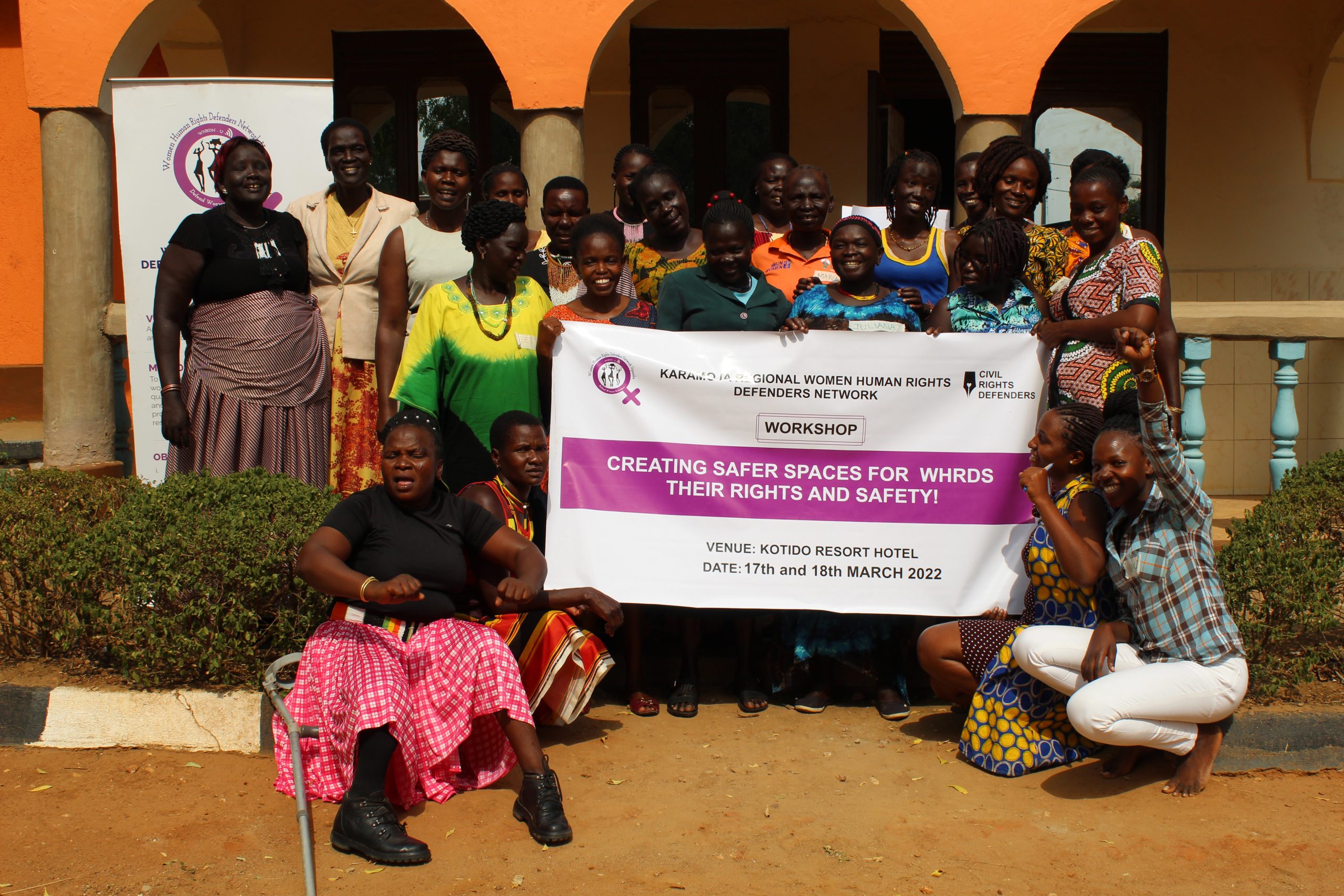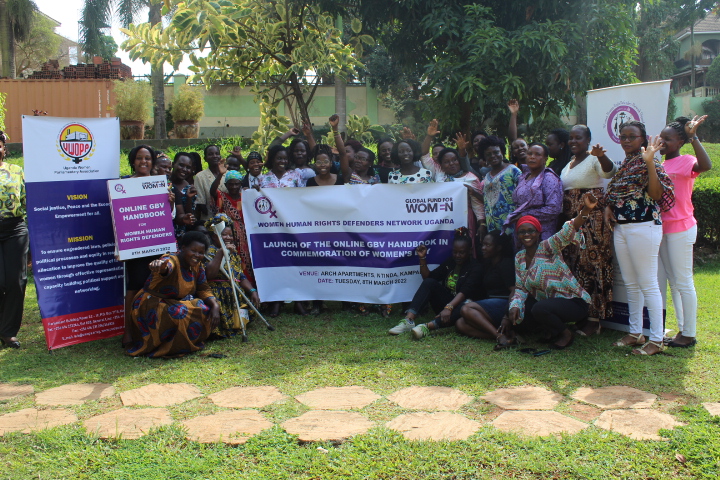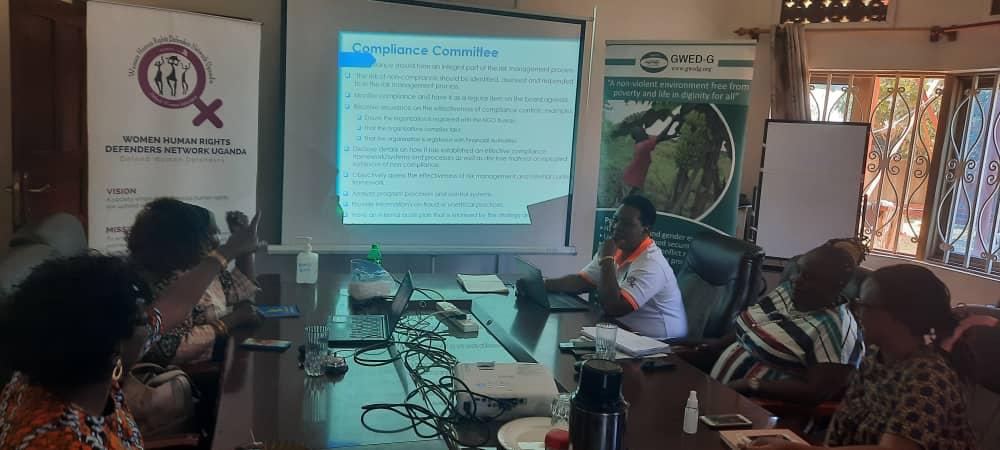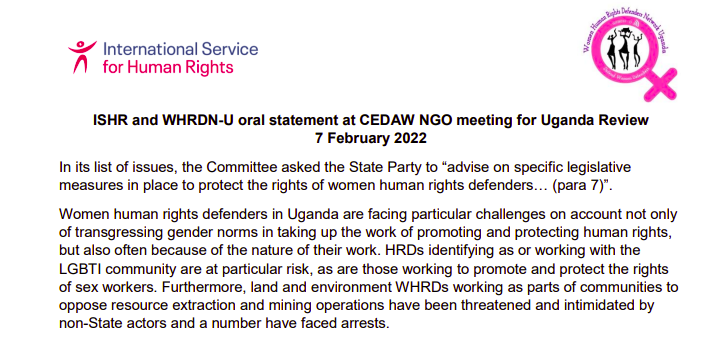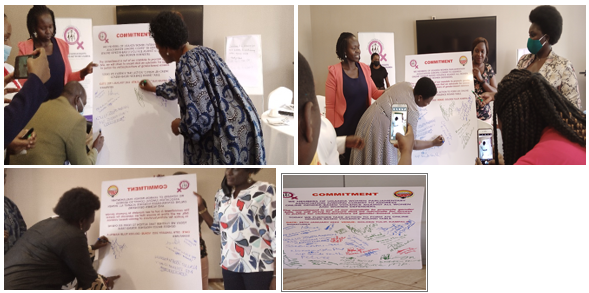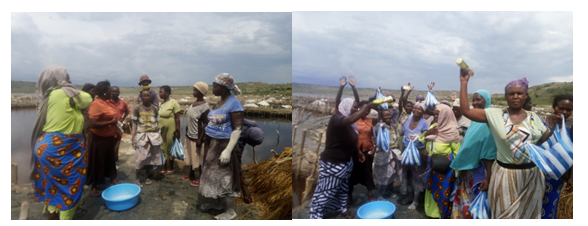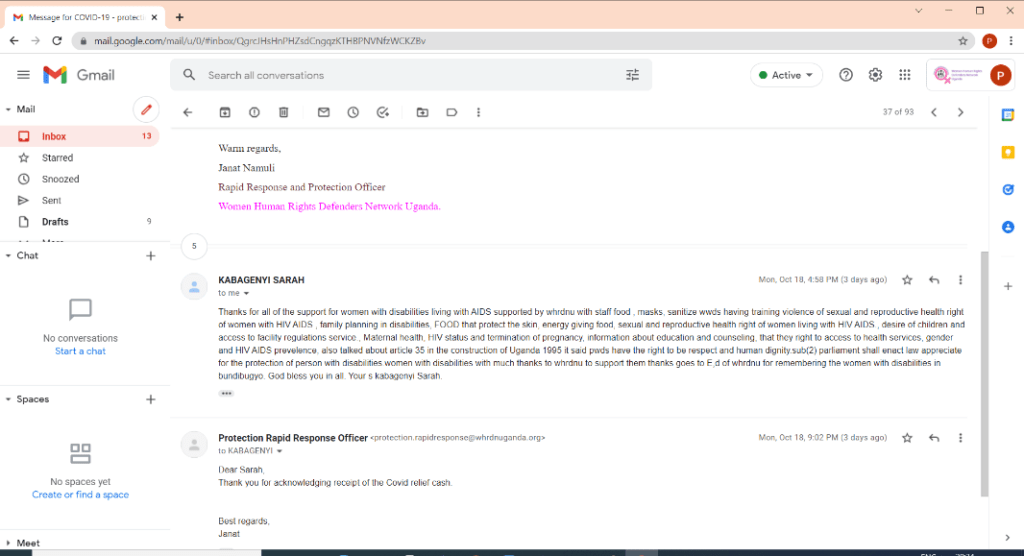Women Human Rights Defenders Network Uganda (WHRDN-U), in partnership with Civil Rights Defenders, conducted a two days’ workshop for 23 Women Human Rights Defenders from Kotido, Amudat and Kabongo, Nakapiriprit, Napak, Abim, Moroto districts. The WHRDS who form the Karamoja Regional Women Human Rights Defenders Network converged at Kotido Resort Hotel on 17th and 18th March 2022 for the themed workshop ‘Creating Safe Spaces for WHRDS, their rights and safety.’

Workshop Objective
The 2 day workshop meant to strengthen the coordination capacity among the WHRDS in the Karamoja region looked to further;
- Increase awareness among WHRDs on their rights and their safety.
- To celebrate the struggles of women and help WHRDs at grass root level feel part of the women’s movement for social justice in Uganda.
- To improve their understanding and analysis of the violence faced by WHRDs and promote collective and feminist protection strategies based on their knowledge and experiences.
- Create awareness on creating safer spaces for WHRDs.
Workshop Flow
The 2 day workshop began with opening remarks from the District focal person, Ms. Ataa Jessica Ruth from Nakere district. She informed the participants that she was privileged to have supported the WHRDN-U secretariat with mobilization and coordination of the workshop. She further emphasized the importance of Karamoja WHRDs coming together to support each other and that whereas WHRDs are doing human rights,they are vulnerable to attacks and smear campaigns in the Karamoja region.

Brenda Kugonza, Executive Director of WHRDN-U also welcomed participants to the workshop. She appreciated WHRDs who have resisted oppression, defended rights and kept resilient. She underlined the need for WHRDs to shoulder each other and acknowledge the contributions we are making in our communities even if we are from various social movements.

River of Life: Reflection on stories of activism
Brenda Kugonza asked each participant to draw a river on a sheet of paper which will represent their individual RIVER OF LIFE. Brenda explained that our lives are never straight lines; the river will inevitably have some curves to it, some rapids, rocks and a few quiet spots along the way. Participants were asked to identify some important moments in their history of activism and place them along the course of the river, the moment when they first became concerned about human rights and the most significant moments in their history as activists.

Understanding who we are as human rights defenders
In this session facilitated by Ms. Asingwire Bonitah from WHRDN-U, it was meant to deepen the definition of a Woman Human Rights defender. The session enabled participants give their own understanding of who a human rights defender is.

Participants share their understanding of who a Human Rights Defender is.
Participants further shared alternative terms that a human rights defender can be referred to as in their different local dialects.

The ‘Flowers of our struggles’ We are part of the human rights movement
In this session facilitated by Brenda Kugonza, participants discussed the strengths and value of women’s movement and establishing WHRD regional networks, noting that movements enable women to use their collective power to bring change , speaking not as individuals organizations but with a powerful voice that cannot be easily isolated and suppressed. Each member was asked to write and name their stories of their struggles that they have contributed to the strengthening of the women’s and human rights movement.


The reflection on the photographs made participants feel that they are part of a movement beyond their organizations, groups etc and acknowledged the benefits and strengthens of movements as illustrated below:
- My reflection on the pictures is that Women don’t fear to stand and speak against violence “Chepar Paulina”
- Cecilia Dengel mentioned that women are fearless to demonstrate
- Esther Toto mentioned that women HRDs are confident to demonstrate because they know their rights.
- Rose Namoe mentioned that women’s movements show that they are brave to advocate for other people’s rights.
- Maria Kiiza said that the pictures show solidarity amongst WHRDs.

WHRDS dance and jubilate at the end of Day 1 of the workshop
DAY TWO
Understanding the legal framework for defense of human rights defense.
This session facilitated by Brenda Kugonza, was meant to review instruments that support HRDs. Brenda stressed that The UN Declaration on Human Rights Defenders in its preamble, fourth paragraph, defines HRDs as individuals , groups and associations contributing to the elimination of all violations of human rights.”

The Declaration considers HRDs as rights holders and is an important instrument that can be used to lobby and advocate for the rights of defenders.
